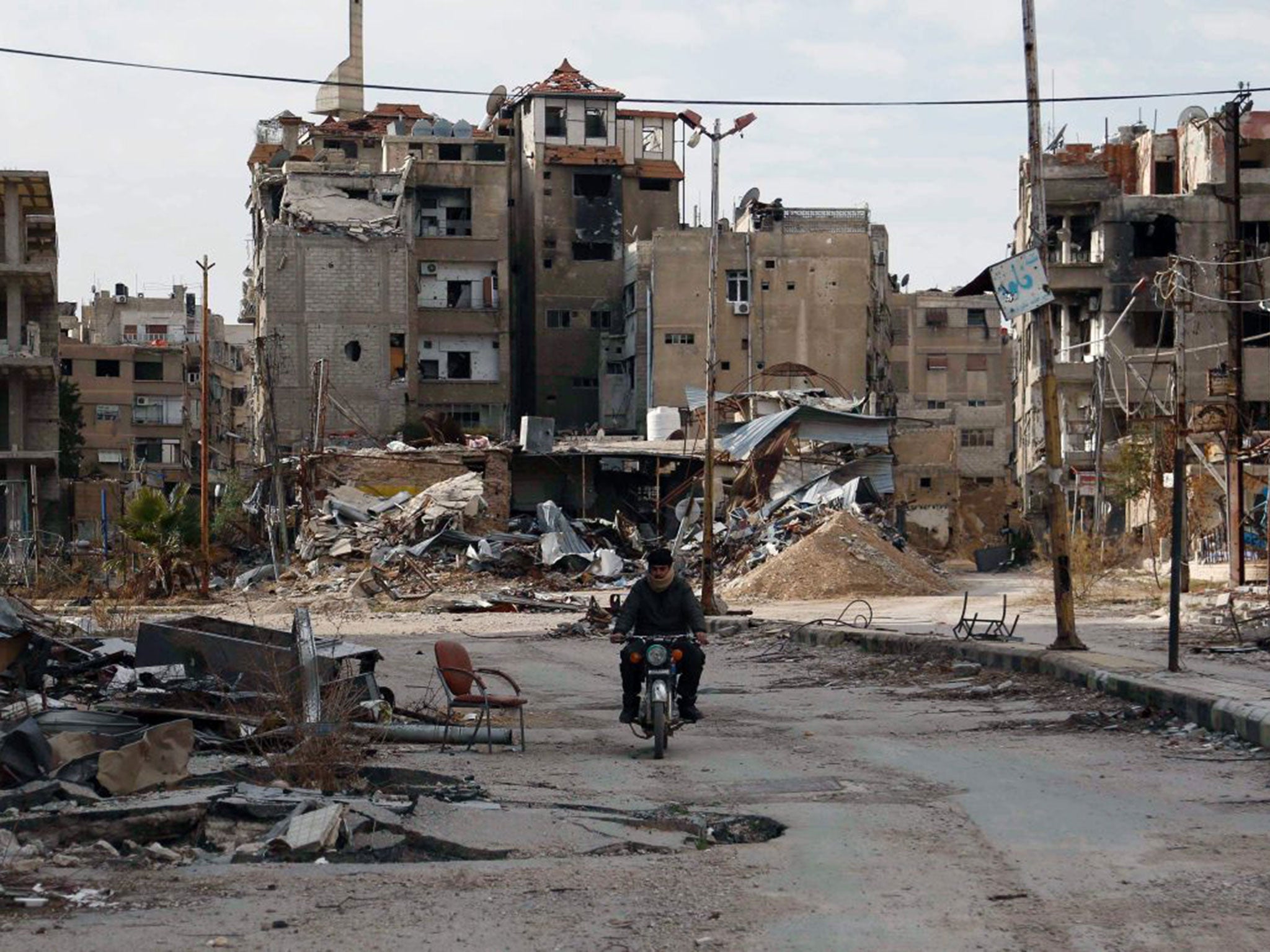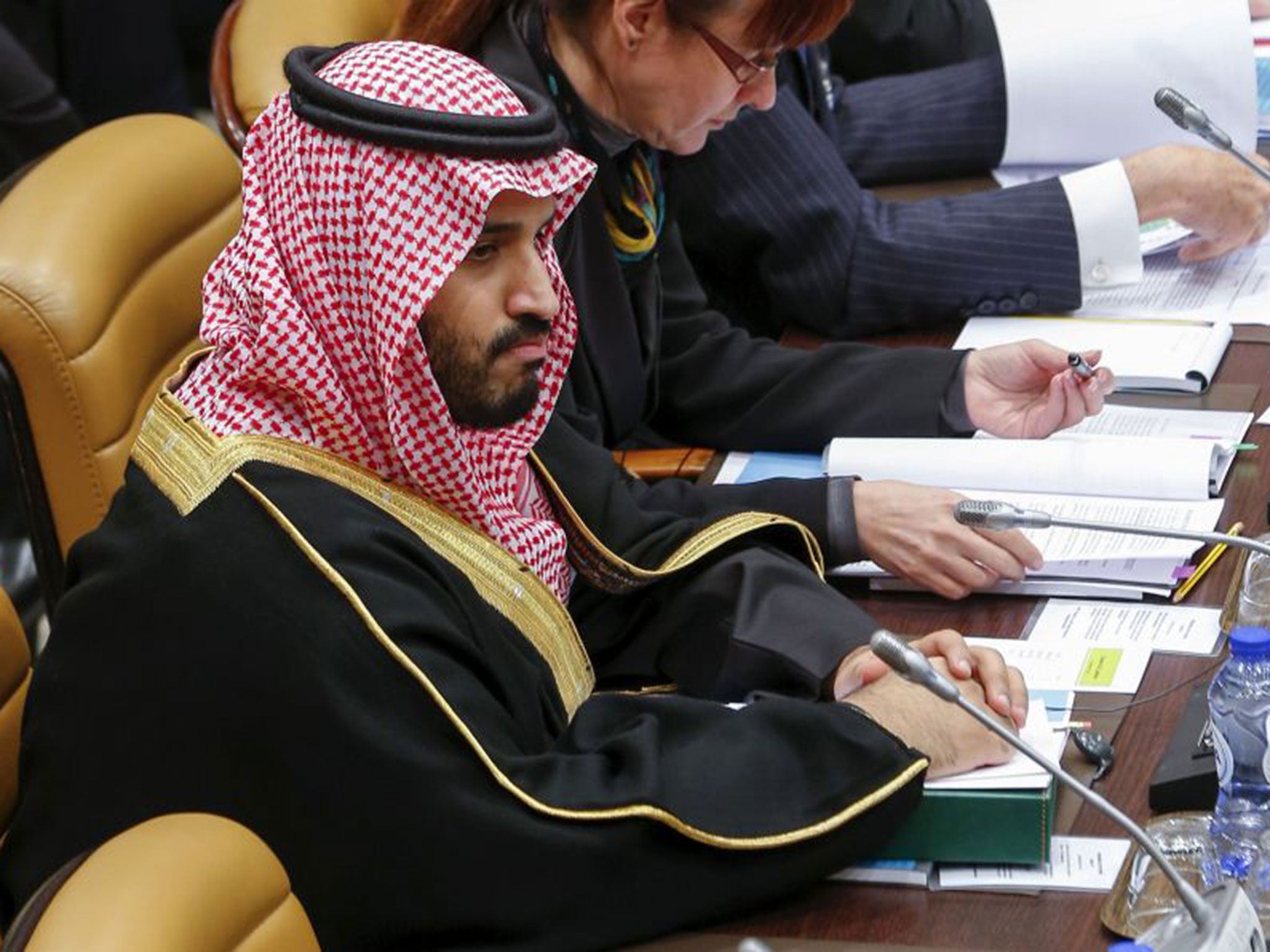Syria civil war: Prospect of Saudi incursion raises fears of a conflict without end
Russian Prime Minister Dmitry Medvedev warns of the spectre of a permanent or world war if the Gulf nations send troops

The first fateful steps have been taken for Saudi-led troops to enter Syria’s civil war, a move that has raised fears of powers across the region being drawn into a bloody conflict without end.
Prince Mohammed bin Salman, the Saudi Defence Minister and heir apparent to the throne, presented his country’s military plans to a summit organised by a US-led coalition on Syria at Nato headquarters in Brussels. Ashton Carter, the US Defence Secretary, reported afterwards that a “wide variety of things” had been discussed with the Saudis on the use of ground forces.
He added: “First of all it was training of both the military and the police, forces on the ground enabling and accompanying partner force, the Saudi ground forces can do that. We talked about use of special forces – although I don’t want to go into that here – we also talked about logistic support and sustainment, and of the rebuilding that will need to take place.”
He said: “Saudi Arabia is also re-invigorating its air campaign, Saudi Arabia and its partners have a clear stake in this fight… In the weeks to come there will be opportunities to follow up on the offers made today.”
Saudi Arabia and the Gulf states had withdrawn in recent months from carrying out air strikes in Syria and Iraq, focusing instead on Yemen where they are battling Iran-backed Houthi rebels. The Saudis have stated they will lead a force drawn from an Islamic coalition. Its members – United Arab Emirates, Bahrain, Jordan and Kuwait – were also present at the meeting.
Michael Fallon, the Defence Secretary, who met Prince Mohammed at the summit, said: “We welcome the offer. The Saudis are serious, they are leading this coalition.”

The Saudis stated reason for the proposed intervention in Syria is to tackle Isis, but there is widespread apprehension that it may also widen and escalate the vicious sectarian strife. There is a widely held perception that troops from the Sunni Gulf states will provide support for Syria’s Sunni rebels who are losing ground and this will bring them into conflict with the Shia enemies – Iranian “volunteers” and Lebanese Hezbollah fighters backing the regime of Bashar al-Assad. That regime is also backed by Russian air strikes.
The Russian Prime Minister raised the spectre of a permanent or a world war if the Gulf nations sent troops and world powers failed to negotiate a peace. “All sides must be compelled to sit at the negotiating table instead of unleashing a new world war,” said Dmitry Medvedev.
He added: “The Americans and our Arab partners must think well: do they want a permanent war? It would be impossible to win such a war quickly.”
Mr Fallon stressed that countries facing Isis wanted forces from the region on the ground rather than those from the West. “The Iraqi Government is very clear it doesn't want western boots on the ground, it has to be the right boots on the ground and clearly Saudi troops would be more welcome that western troops when it comes to any fighting,” he said.
Western powers have been pressing Syria’s neighbours to do more to combat Isis. At the start of the meeting Mr Carter said: “This marks the beginning of a new stage in the campaign against Isil [Isis]. The campaign will go faster if all the nations in this room did more. We will all look back after victory and remember who took part in the fight.”
Brigadier General Ahmed al-Asiri, the Saudi military’s chief spokesman, was robust in the defence of ground troops saying it was “an irreversible decision”. He claimed the deployment may involve 32 members of an Islamic coalition. “Yes, we know the Iranians are there. But no one is fighting Daesh [Isis]. If the Iranians want to fight Daesh let them join the coalition and stop supporting the terrorists.”

Speaking in Brussels, he stressed that the Saudis and their allies were prepared to take part in military operations. “We have agreed to go and we have given the US-led coalition our plans. Other things, details like numbers, types of troops, will be decided by specialists, they will be operational by March or April.”
Thursday's summit took place amid bitter accusations about the assault on Aleppo by Assad forces backed by Russian air strikes with Washington accusing Moscow of delaying a ceasefire so they could crush moderate rebels.
The Russians had proposed a ceasefire starting on 1 March, but the Obama administration claimed they were creating a three-week window to drive away opposition fighters from what was once Syria’s biggest and wealthiest city.
Join our commenting forum
Join thought-provoking conversations, follow other Independent readers and see their replies
Comments